I have problem with comparison of two variables of "Real" type. One is a result of mathematical operation, stored in a dataset, second one is a value of an edit field in a form, converted by StrToFloat and stored to "Real" variable. The problem is this:

As you can see, the program is trying to tell me, that 121,97 is not equal to 121,97... I have read
this topic, and I am not copletely sure, that it is the same problem. If it was, wouldn't be both the numbers stored in the variables as an exactly same closest representable number, which for 121.97 is 121.96999 99999 99998 86313 16227 83839 70260 62011 71875 ?
Now let's say that they are not stored as the same closest representable number. How do I find how exactly are they stored? When I look in the "CPU" debugging window, I am completely lost. I see the adresses, where those values should be, but nothing even similar to some binary, hexadecimal or whatever representation of the actual number... I admit, that advanced debugging is unknown universe to me...
Edit: those two values really are slightly different.
OK, I don't need to understand everything. Although I am not dealing with money, there will be maximum 3 decimal places, so "currency" is the way out
BTW: The calculation is:
DATA[i].Meta.UnUsedAmount := DATA[i].AMOUNT - ObjQuery.FieldByName('USED').AsFloat;
In this case it is 3695 - 3573.03

